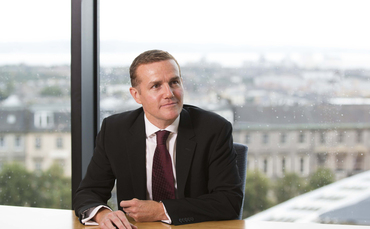The £175m fund, launched in May this year, follows the same investment philosophy as the firm's £5bn multi-asset franchise, but with key differentiators, such as a carbon budget and the use of the firm's proprietary ESG screening process.
It has positions in some of Baillie Gifford's top funds, such as the £2.3bn Positive Change fund, the £860m Responsible Global Equity Income fund and £795.4m Strategic Bond fund, as well as in external funds and direct investments.
Although the portfolio does not currently have any private equity positions, Scott Lothian, one of the portfolio managers of the fund, is watching the listed private equity trust space closely.
Baillie Gifford funds waver as private equity and India boom
"They are interesting, even if we think that the net asset value of those funds are a little bit stale, because they are selling on a mighty big discount," he said.
Indeed, private equity trusts have rarely been this cheap. The average discount in the sector has widened from 15% at the start of 2022 to around 40% in late October, according to data from Stifel.
The Edinburgh-based firm has been investing in private companies since 2012. It floated the listed Schiehallion trust in 2019 and launched unlisted closed-ended private equity funds, such as the Baillie Gifford Private Companies fund II.
The potential move into listed private equity comes after the team significantly reduced the fund's listed equity exposure, as well as its listed property and infrastructure positions, in favour of investment grade bonds, high yield credit and cash.
Baillie Gifford's Dow slashes stock picking activity in light of global uncertainty
"We see significant concerns ahead for many equity markets over the course of the year. We have seen probabilities of entering a recession and that recession may be longer or worse than previously expected," he said.
"This has caused us to bring some risk off the table in terms of listed equities, as well as REITs, because let us face it, in the short term they trade quite like equities."
The team sold off its listed infrastructure allocation to take profits back in the summer when several listed infrastructure vehicles were trading at a significant premium. Meanwhile, the fund's cash position has risen to 13%, which is higher than the historical average.
"[Cash] is the ultimate safe asset. We definitely see it as an important asset class, an important part of that broad opportunity set, and we have also got a little bit of dry powder," Lothian said.
Will booming private markets lead to success for private equity trusts?
Across credit, the managers are seeing a "great" long term outlook for credit from current valuations, even in light of last month's sell-off, and believe that the asset class can be one of the most resilient during a "light" recession, or even more sustained one.
The fund added to investment grade corporate bonds and emerging market government debt last quarter, but these were small increases, reflecting the team's view that it is too early to start taking bolder steps across a broader range of assets classes.


